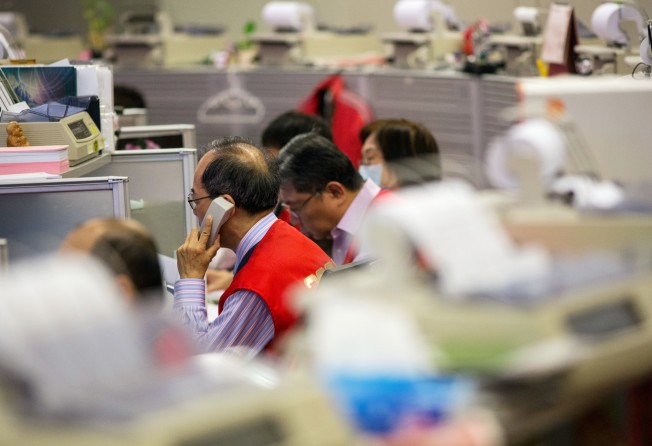Inventive 'circuit breaker' metaphor hides its true meaning
Arterial blockage would be a better description because a circuit breaker stops trading when it is most crucial that a market find its true level

Brokers balked at a stock exchange study that could lead to the introduction of circuit breakers to protect against flash trading of stocks - which can send shares gyrating wildly - saying Hong Kong has adequate suspension rules in place already.
SCMP, February 7
Regulators prize the metaphors they devise for the interventions they practise and "circuit breaker" is one of the more inventive.
The imagery is obvious. The circuit breaker panel installed in your home is a fire prevention measure. Overload your electrical circuits with too many appliances and suddenly there is a "bap" sound from the panel and your lights are out.
Likewise the stock market, say regulators. Overload it with mistaken or heavy trading that distorts prices and, if your market has been properly equipped, its circuit breaker trips and stops the trading immediately when price movements exceed a certain daily range.
But what if we were to adopt a different metaphor? What if we were instead to call this an arterial blockage or an artificial traffic jam?
It would actually be a better description because what the supposed circuit breaker actually does is stop trading at just the time when it is most crucial that a market find its true level through continued trading and just when investors most desperately want the market to remain open to them.
The circuit breaker argument presupposes that at a certain stage of frantic trading all rationality departs from a market and prices can fall to zero or rise unstoppably.
I have never heard of it happening in practice, although I will say that circuit breakers might themselves have this result. They encourage traders into a frenzy as they loom and they stop rash investors from suffering the full consequences of their rashness.
Take this business of "flash trading" - split second buying or selling in programmed trading conducted without direct human intervention.
Let's say the computer gets it wrong and puts in a sell order for a 100 million shares instead of 100,000.
What then happens is that the share price plummets and a good number of investors who happen to be in the market at the time are given the gift of a special discounted price. What is so bad about that?
On the other side of the trade, someone has sold the stock for too low a price. Your own fault, we say to him or her, and you count this as an object lesson that there is a flaw in your algorithm. There is nothing quite like a stinging loss to drive the point home. All is still to the good.
It rarely gets this far, however. Other trading algorithms will have picked up the error, instantly taking advantage of it, and been recognised by the first one. The price will be back at its pre-error level within minutes or even seconds.
The chance that an innocent retail investor will have lost out by selling his stock at too low a price is virtually nil. Even this very slight risk is more than offset by the fact that trading halts which are triggered by imposed circuit breakers invariably trap retail investors in the market while the algorithms escape.
There is one other crucial point to take into consideration here. Our report on this stock exchange study spoke of a US flash crash in 2010 that "erased US$862 billion from the value of equities within minutes".
Wrong. The value of those equities remained unchanged throughout. It was only the price set on this value that changed and then only very briefly, as it could only be without an underlying change in the merits of the stock. Price is not value.
Take note that real investors were not affected. Your pension assets did not suffer if you had money in those stocks. Only short-term speculators were disturbed and why take such tender concern for their feelings? I thought we wanted fewer of them around, not more.
But, of course, if we have circuit breakers on hand to do a job that markets already do by nature then we flatter the egos of regulators who like to think that their presence is essential to the operation of markets.
You need not look much further than this conceit for the reason that circuit breakers are once again under discussion.